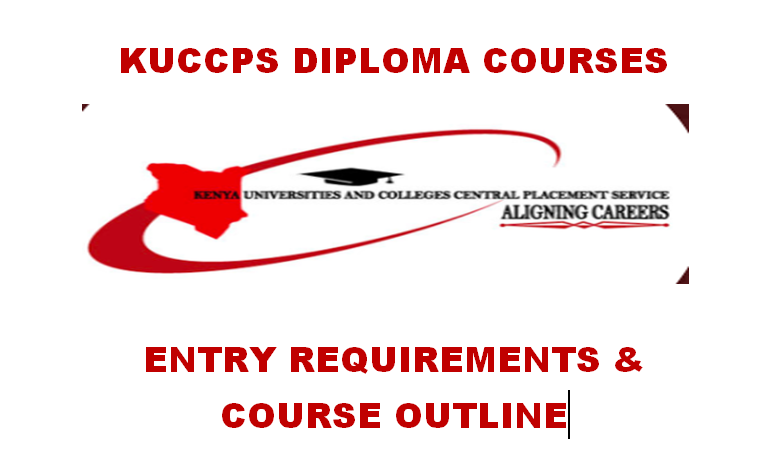Diploma in early childhood development and education course outline entry requirements and all the related concerning diploma in early childhood development and education here. Diploma in early childhood and education; The purpose of this qualification is to equip learners with basic knowledge and skills that will enable them to enter the labor market in the pre-school education sector. Work in an early childhood development environment such as a pre-school or a care facility for children of working mothers. The course will impart general knowledge to enable the trainee to contribute positively to the society and prepare the trainees for further academic pursuit.
- Course duration: 3 years (non modular)
- Examination body: KNEC
Diploma in early childhood development and education Entry requirements
Diploma in early childhood development and education is examined by KNEC and is offered by various approved TVETS, universities and colleges in Kenya. The entry requirements are;
- KCSE aggregate Grade of C- and above or its equivalent as acceptable Qualification by KNEC
- Pass in Relevant Certificate Qualification Learning Outcomes for example a certificate in early childhood development and education graduate wishing to upgrade his or her qualifications need to have obtained a PASS result from a recognized institution to enroll for Diploma in early childhood development and education.
- Mean grades for specific KCSE subjects are not specified for Diploma in early childhood development and education course
Universities and colleges offering Diploma in early childhood development and education courses
Trainees wishing to enroll for a Diploma in early childhood development and education course can easily choose from various institution offering the course. Full institutions are always listed on KUCCPS portal as soon as it is open for application during various intakes, for more on this just visit the KUCCPS portal here
Diploma in early childhood development and education course outline
This course aims at providing Development and Pre-Primary Education who should lay a solid foundation for Lower Primary Education. In addition, the Diploma aims to develop teachers as empowered citizens with employable skills such as problem solving, critical thinking and assertive communication.
The course is also instrumental in developing the learner’s philosophical, Sociological, Historical and Psychological perspectives in ECDE.
Career opportunities in diploma in early childhood development and education
- Early Childhood Tutor.
- Child Counsellor.
- School Administrator.
- Teacher.
The following are a list of units/ subjects studied at Diploma in early childhood development and education
- Philosophical, sociological & historical foundations of ECDE
- eneral psychology
- urriculum development
- Child growth & development I
- Child rights & child protection
- General methods of teaching young children &material dev
- Child growth and development II
- Language activities
- Mathematical activities
- Music and movement activities
- Science activities
- Physical and psychomotor activities
- Research, monitoring and evaluation
- Child development iii pre and adolescence
- Social studies activities
- Creative activities
- Health, nutrition and care
- Children in need of special protection
- Guidance and counseling
- Community development
- Training & management of ECDE programs
- Teaching practice
- Information communication technology
- Life skills
- Communication skills
- Entrepreneurship
DIPLOMA IN EARLY CHILDHOOD AND EDUCATION KNEC PAST PAPERS
TVETS AND COLLEGES
- Kenya coast national polytechnic courses portal and how to apply
- Nyeri national polytechnic courses portal and how to apply
- Kisumu national polytechnic courses portal and how to apply
- Sigalagala national polytechnic courses portal and how to apply
- Eldoret national polytechnic portal courses contacts and how to apply
- Co-operative university of Kenya courses, contacts, location, website and how to apply
- Technical university of Mombasa courses, contacts, location, website and how to apply
- Technical university of Kenya courses, contacts, location, website and how to apply
- North Eastern national polytechnic courses, contacts, location, website and how to apply
- Kenya technical trainers college courses, contacts, location, website and how to apply
- Kisii national polytechnic courses portal and how to apply
- Kitale national polytechnic courses portal and how to apply
- Meru national polytechnic courses portal and how to apply
- Kabete national polytechnic courses portal and how to apply
- Dedan Kimathi University of Technology courses, contacts, location, website and how to apply
- Diploma in supply chain management units, course description and KNEC exam fees
- Diploma in human resource management, class units, course description and KNEC exam fees
- Certificate in Electrical and Electronic engineering class units, course description and KNEC exam fees
- Diploma in Information communication technology class units, course description and KNEC exam fees
COURSE NOTES
- Introduction to ICT and ethics notes PDF
- Communication skills notes PDF
- Entrepreneurship notes PDF
- Economics notes PDF
- Financial accounting notes PDF
- Business law notes PDF
- Research methodology notes PDF guide
- Trade project notes & PDF sample
- Principles and practice of marketing notes PDF
- Microprocessor systems notes PDF
- Management information system MIS notes PDF
- Data communication and networking notes PDF
- Internet based programming IBP notes PDF
- Quantitative methods notes PDF
- Visual basic notes PDF
- Object oriented programming notes PDF
- Database management system notes PDF
- System analysis and design notes PDF
- Quantitative techniques notes PDF
- Principles and practice of management PPM notes PDF

